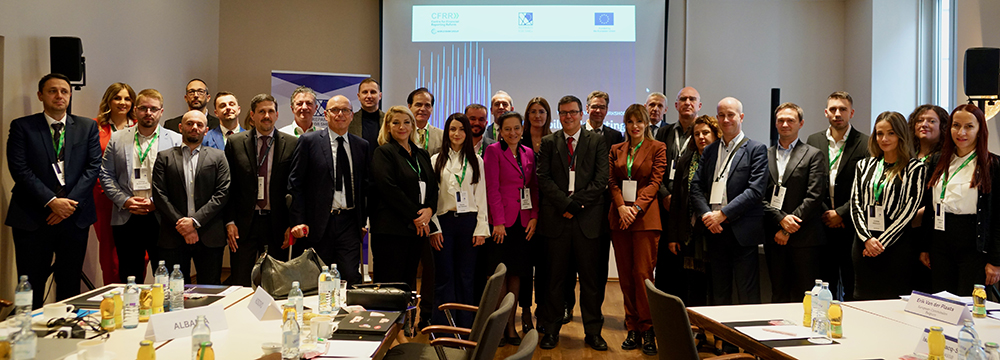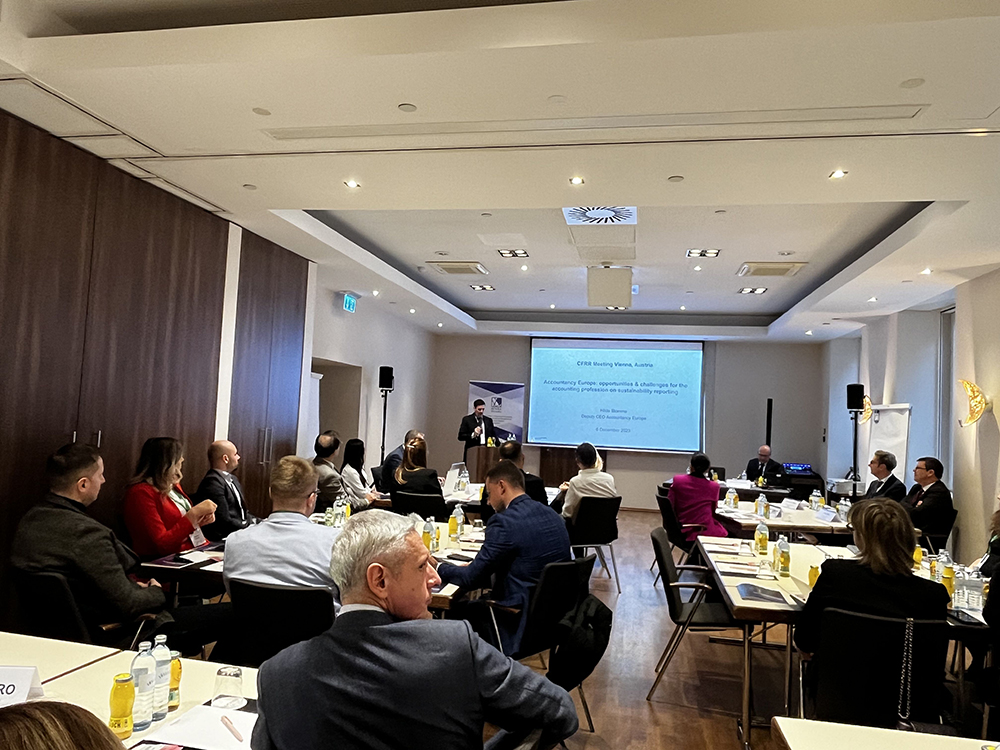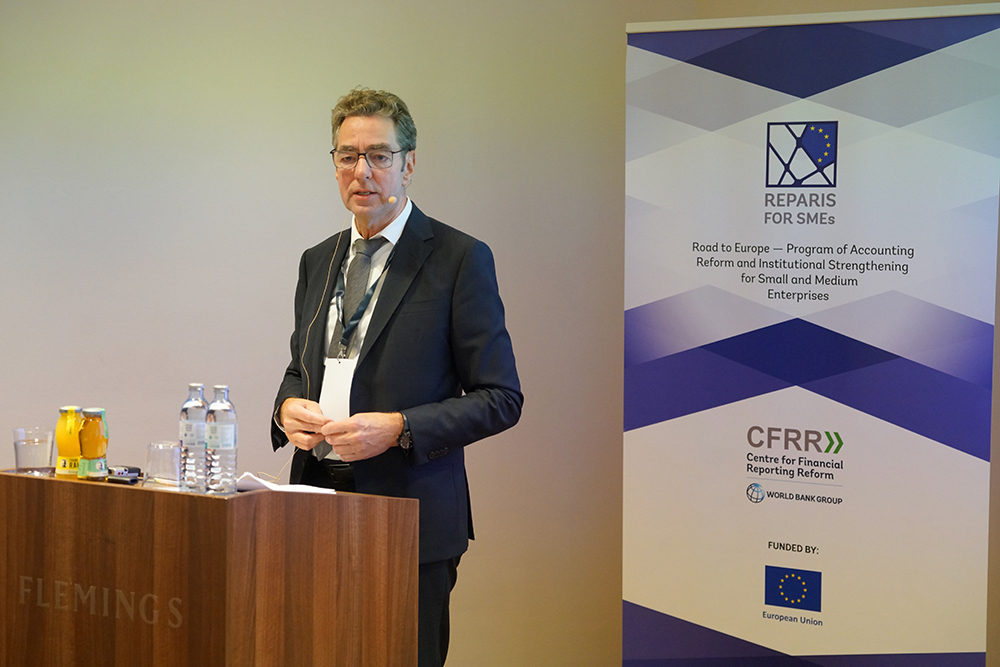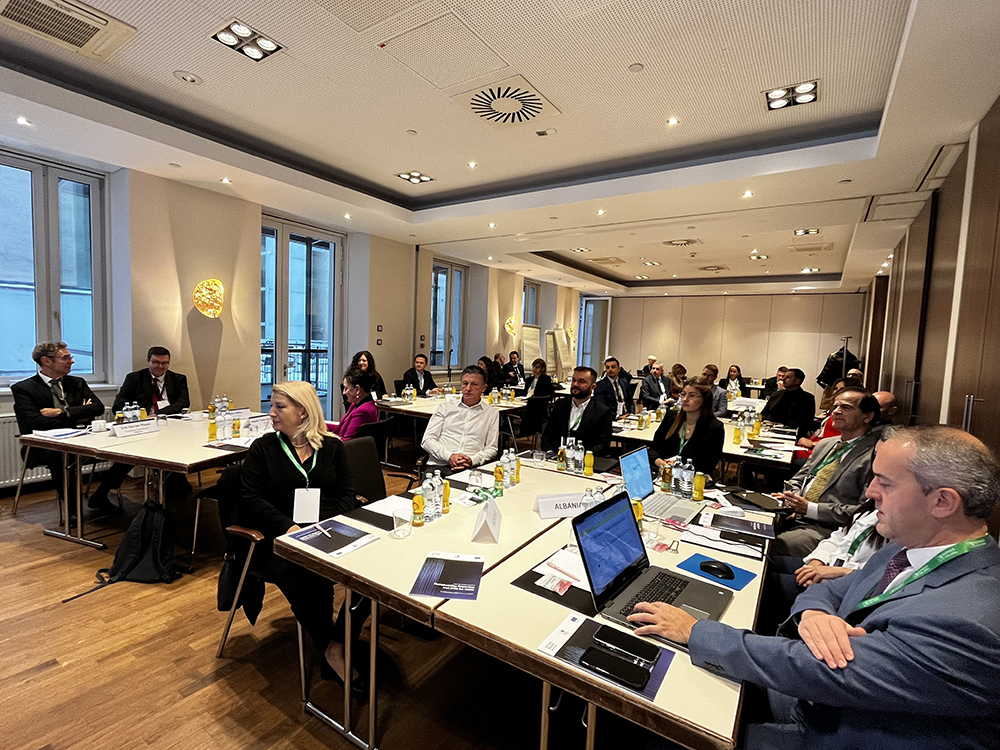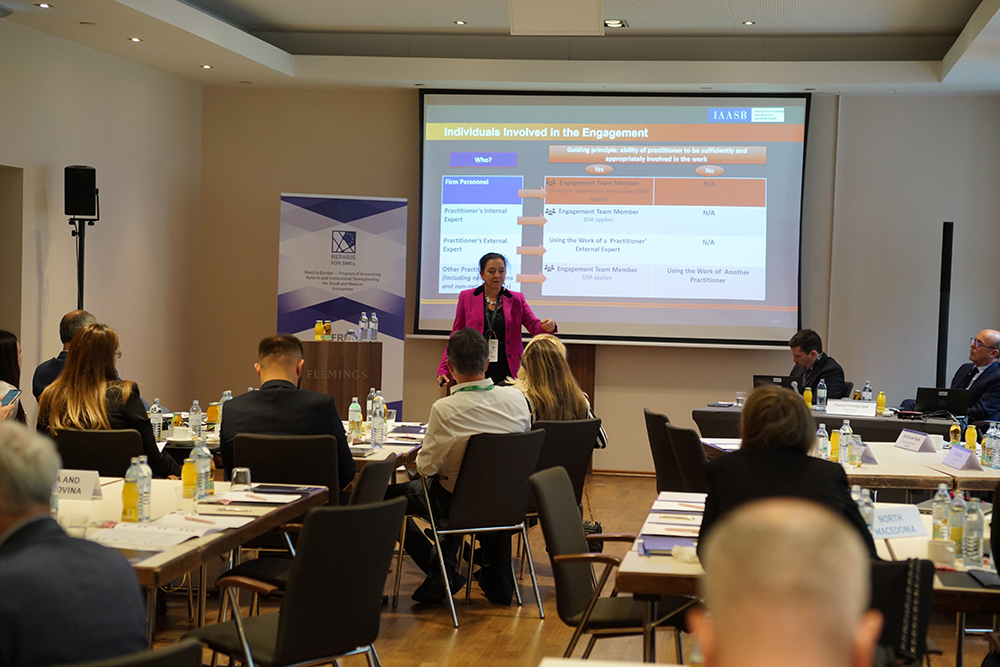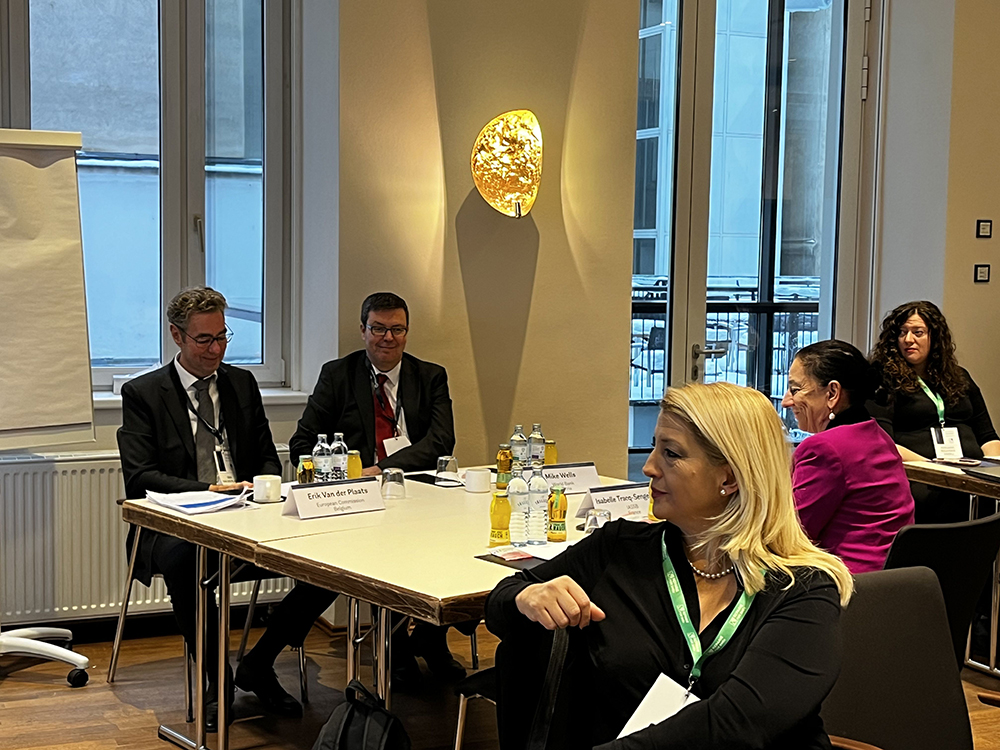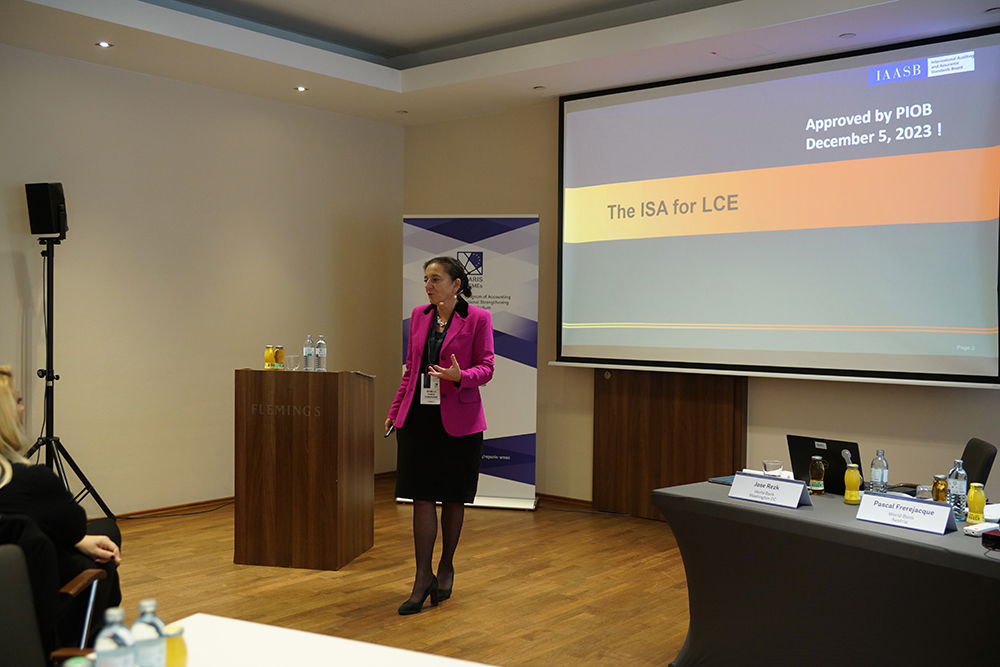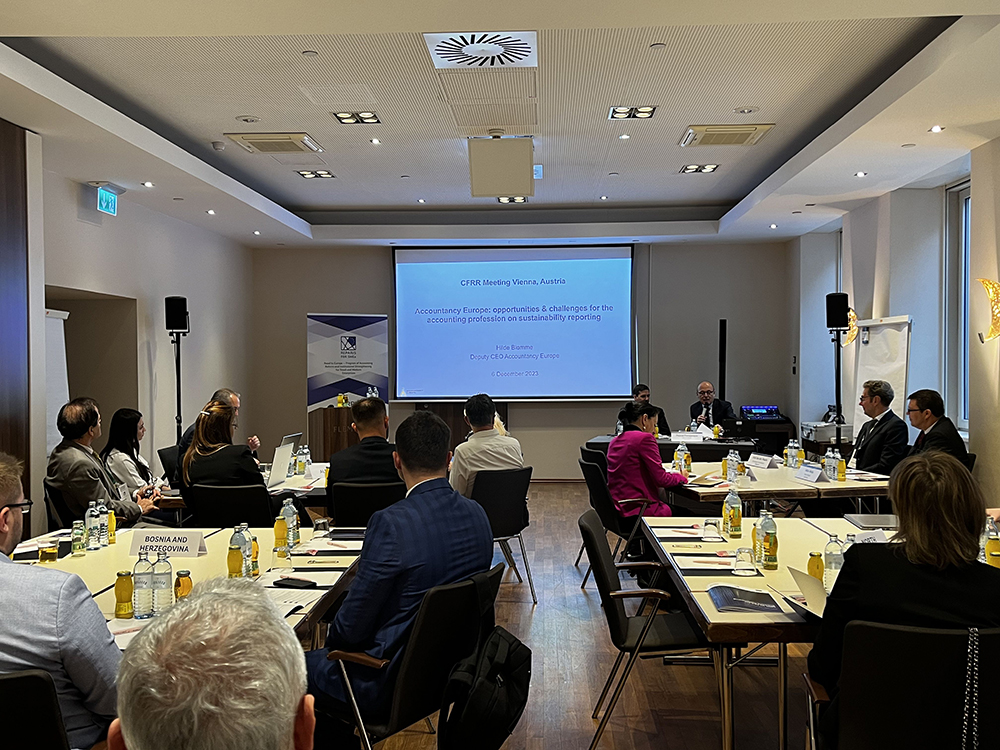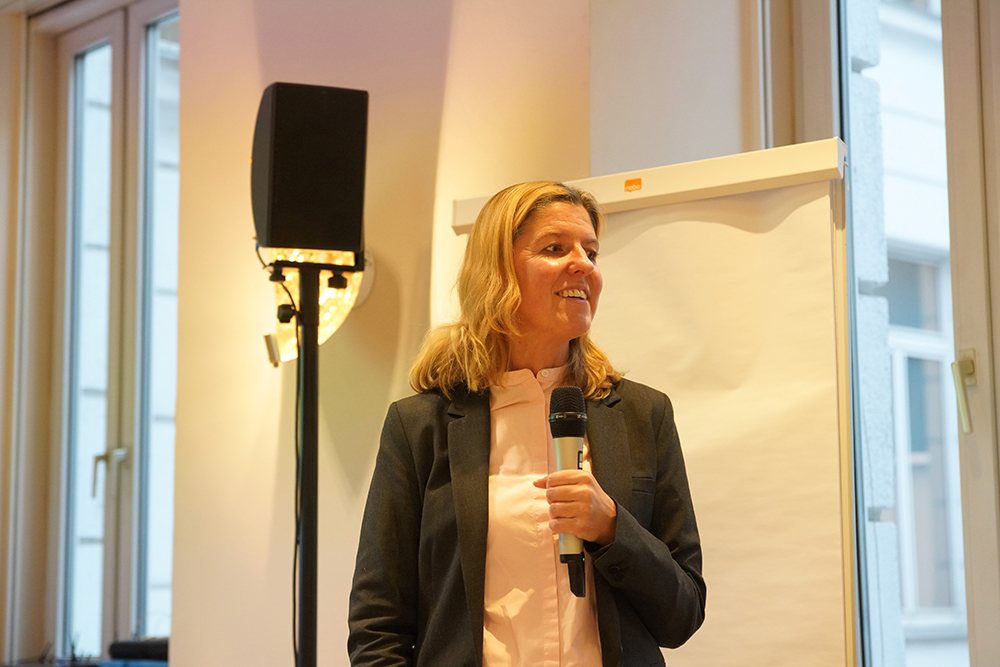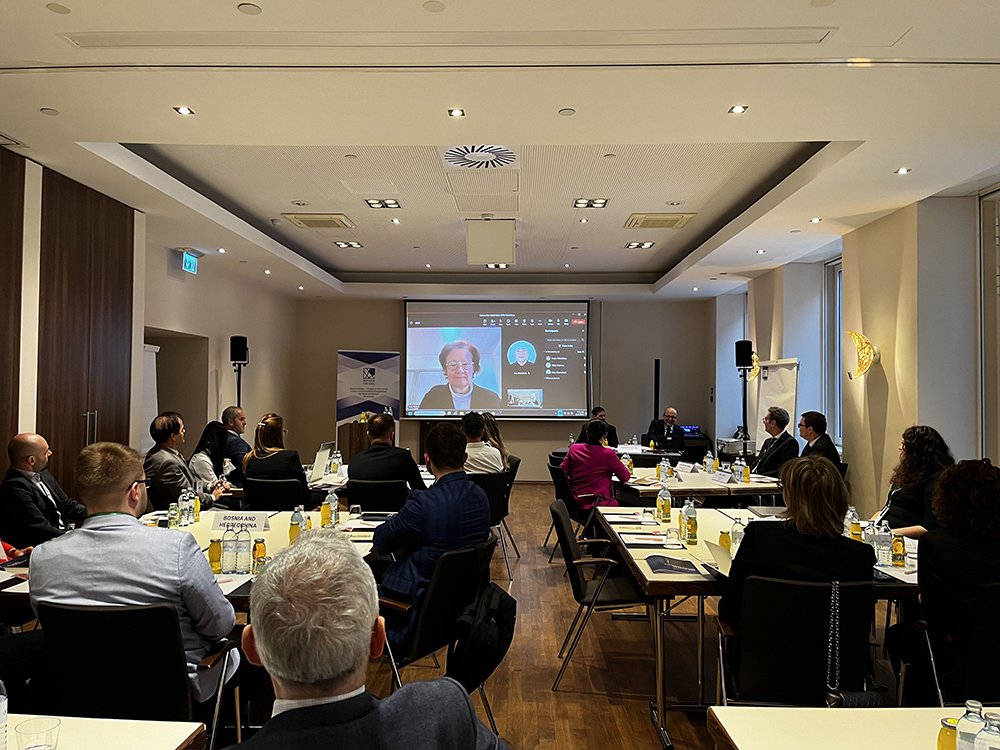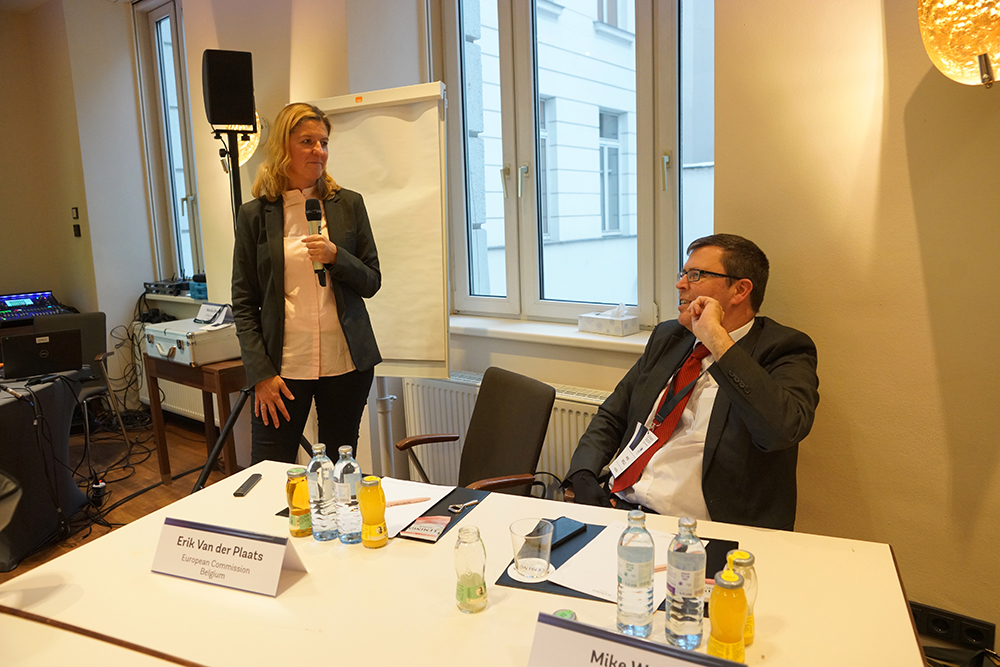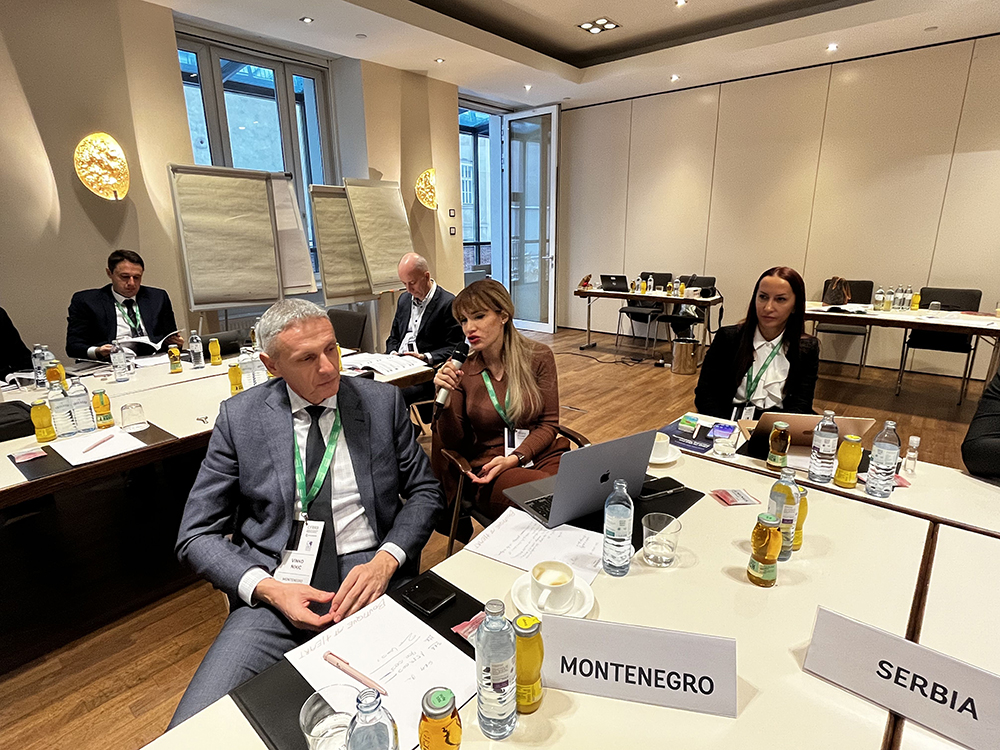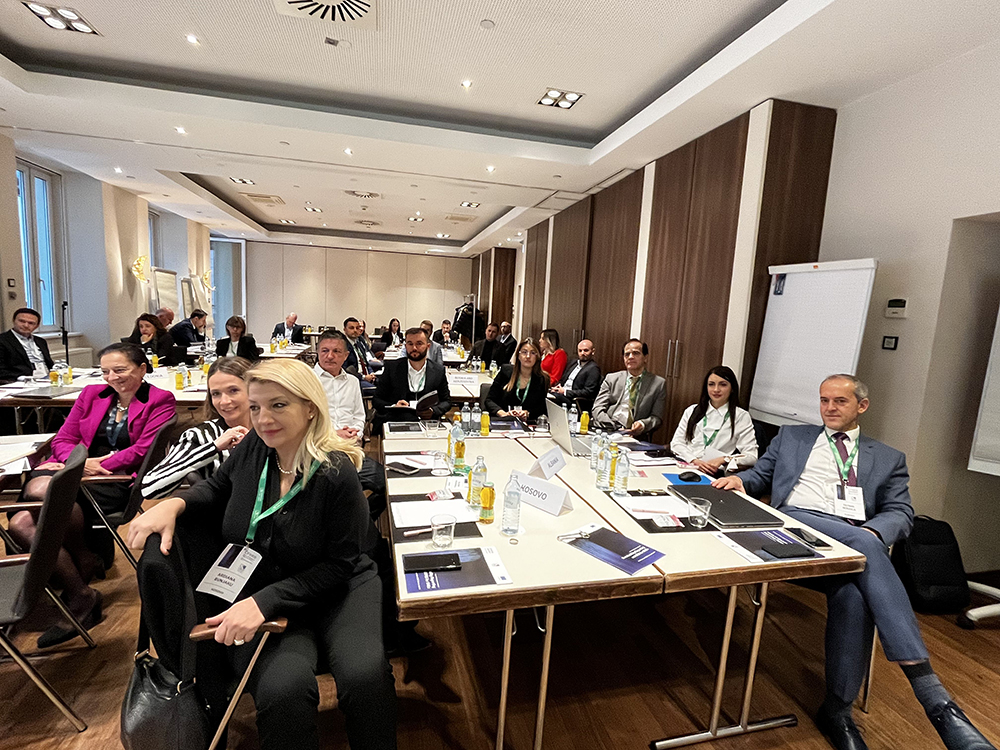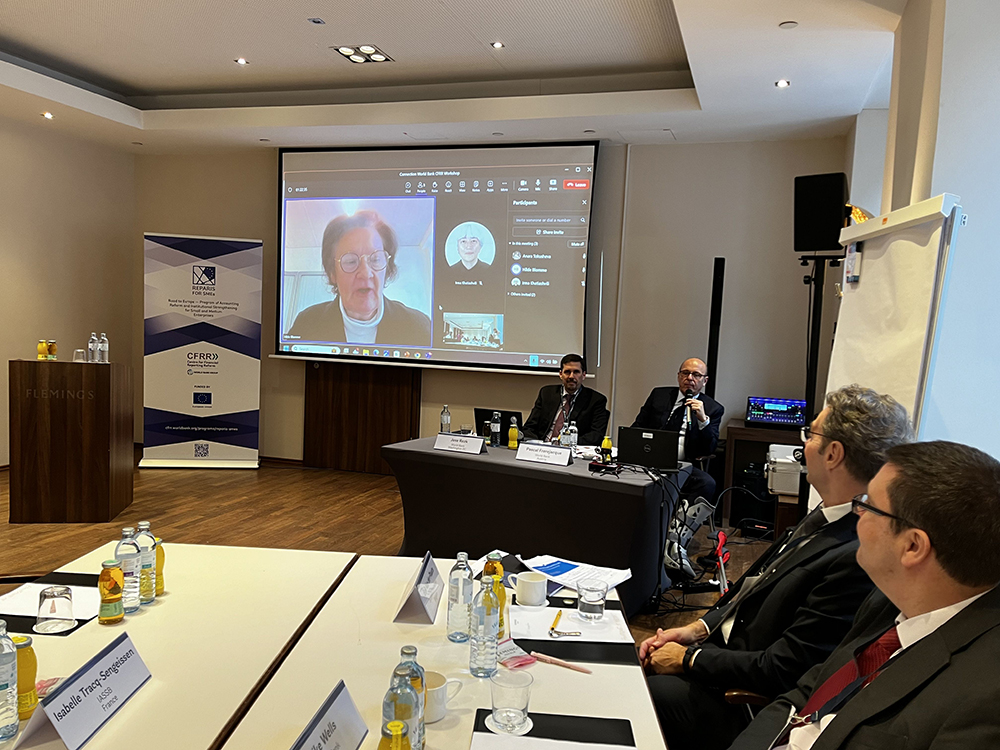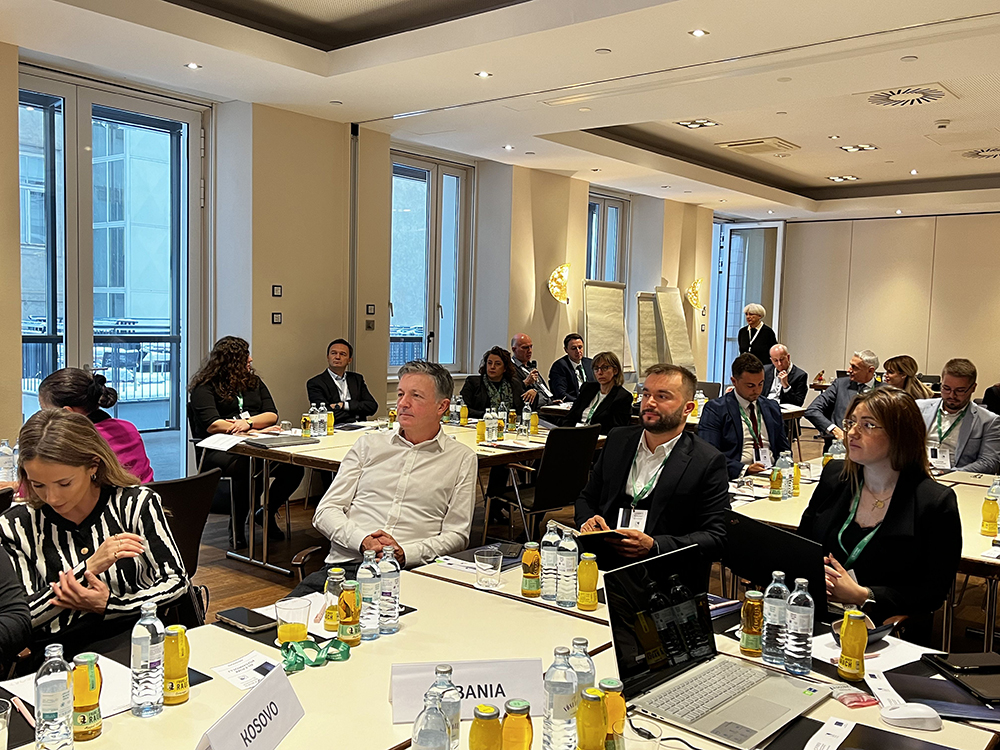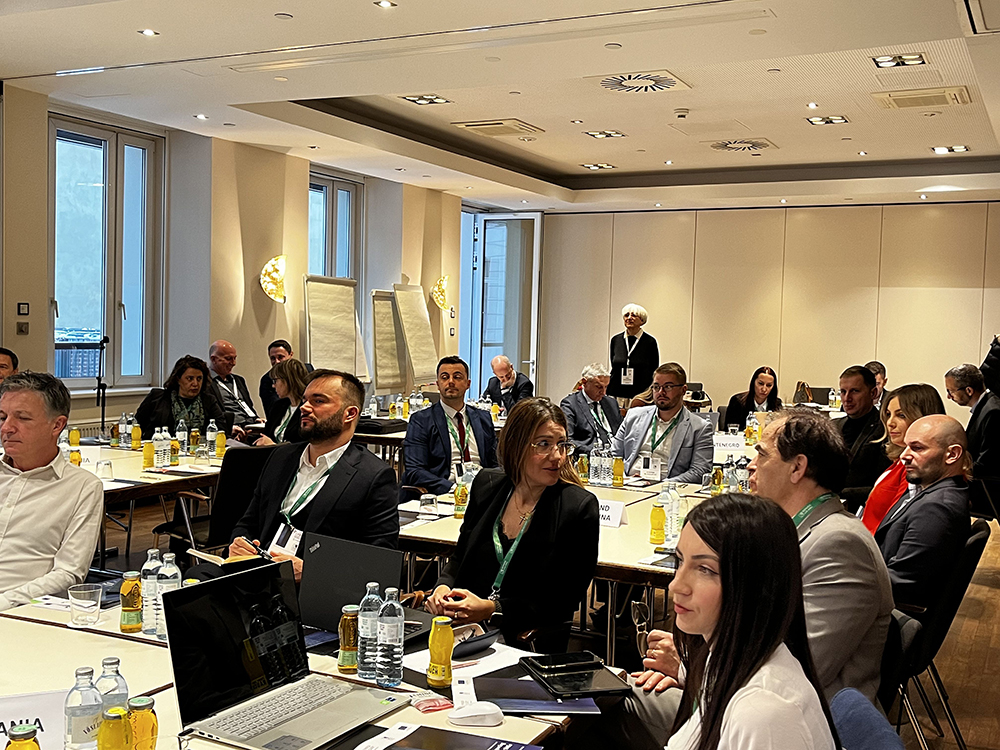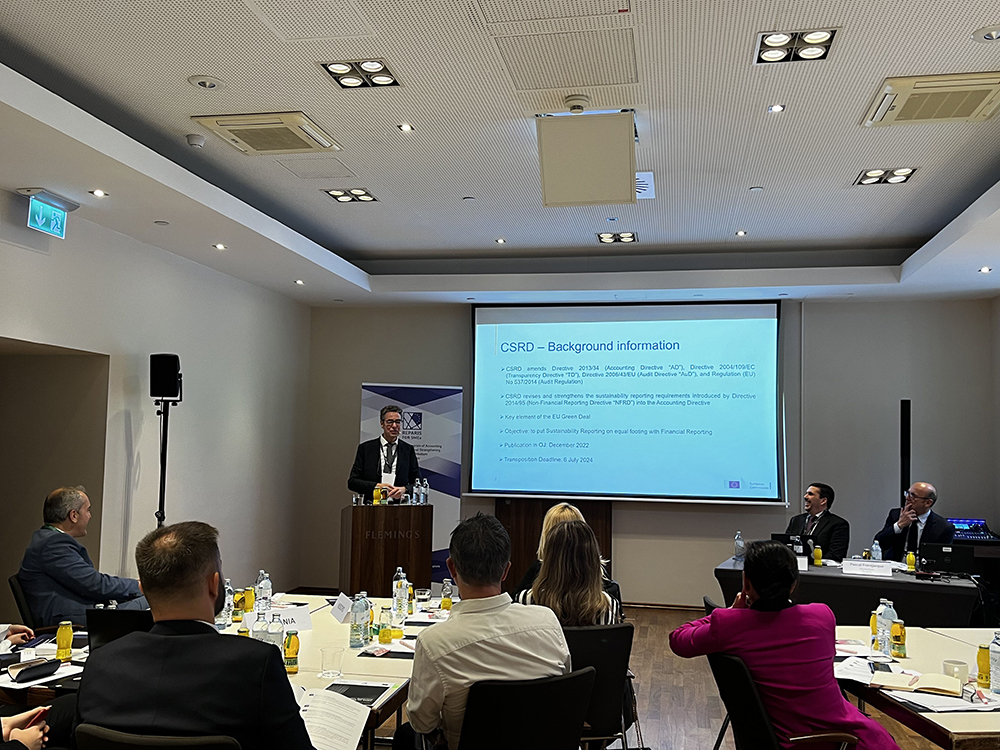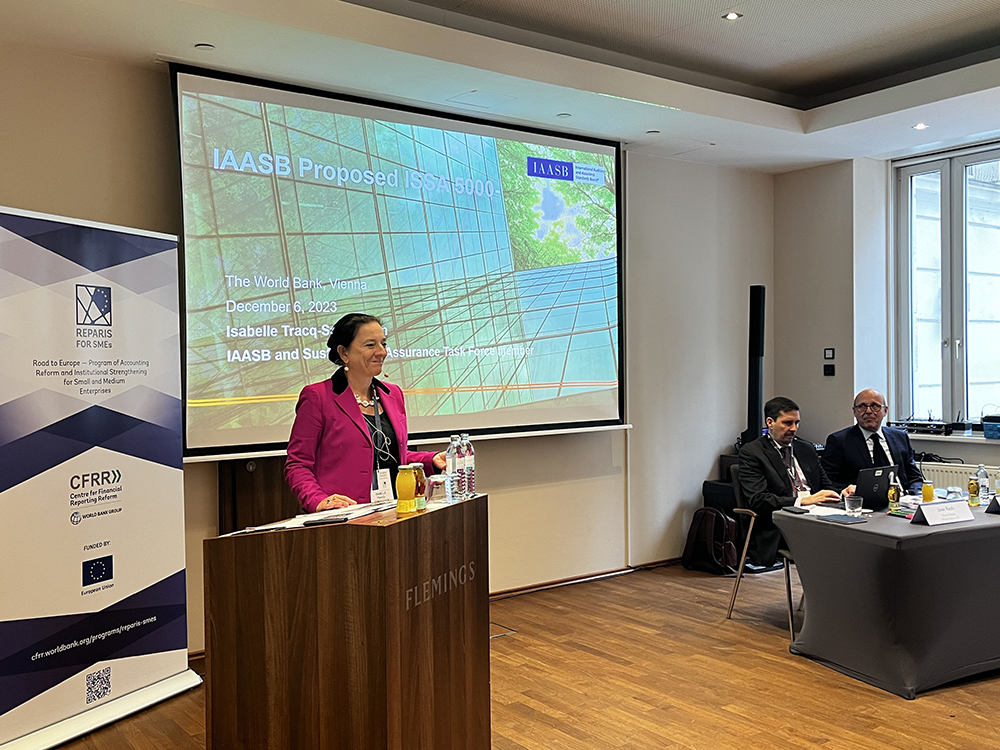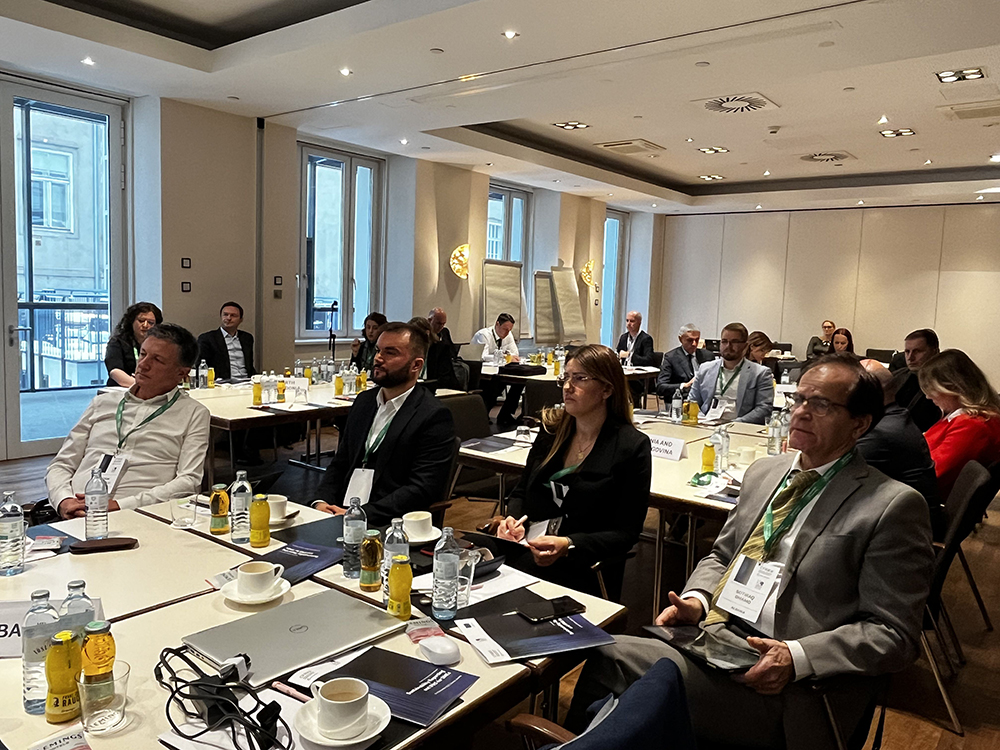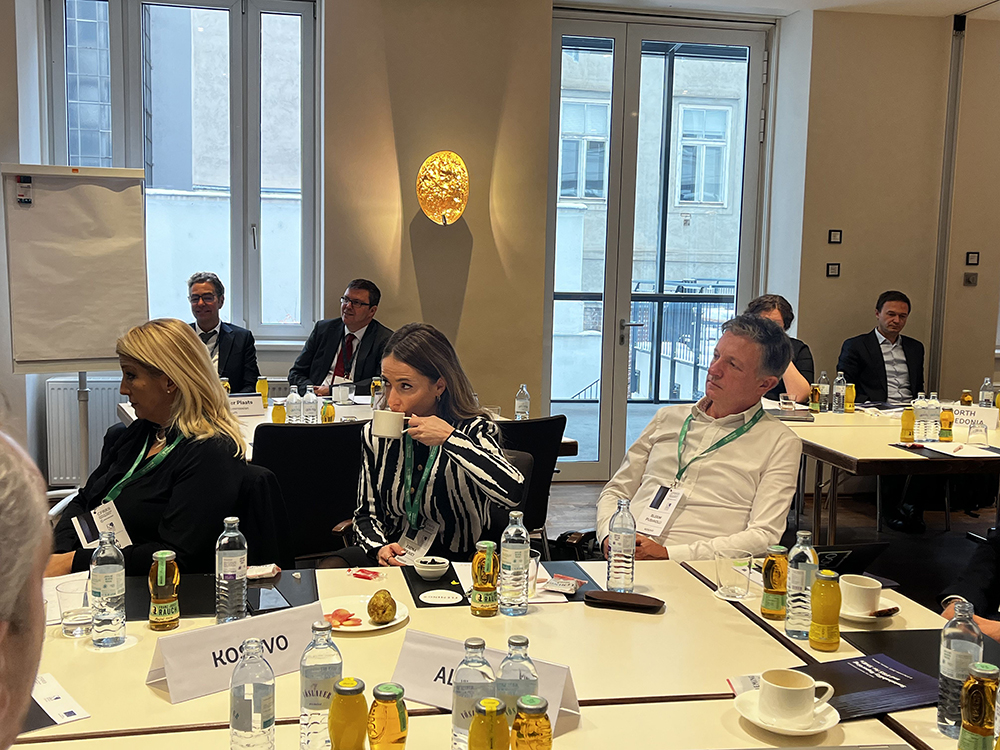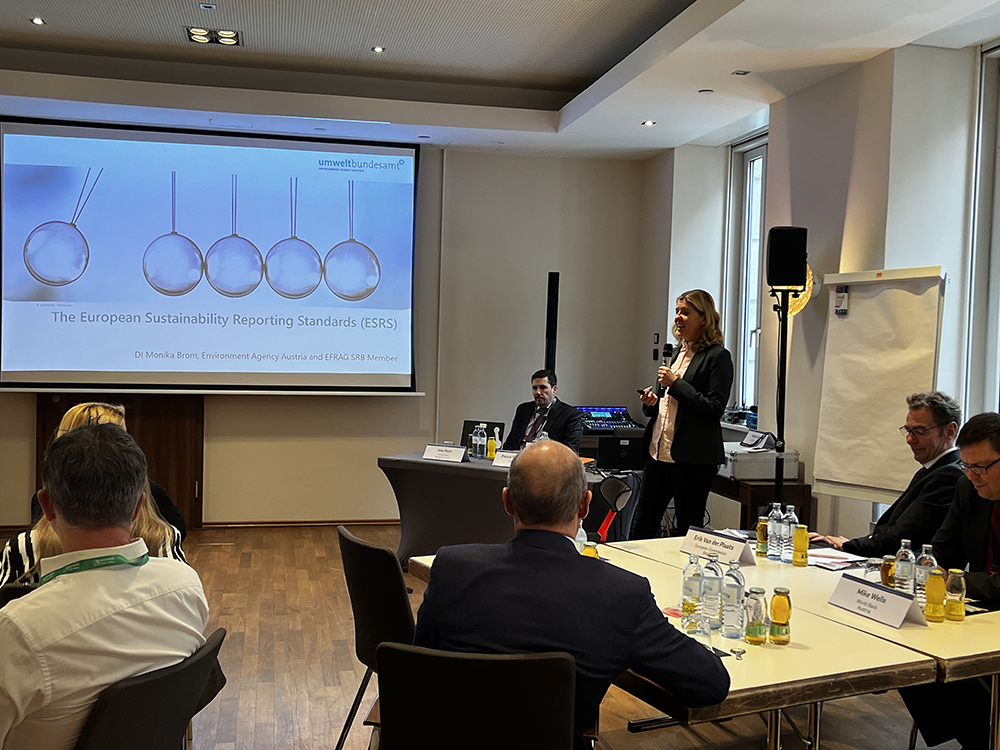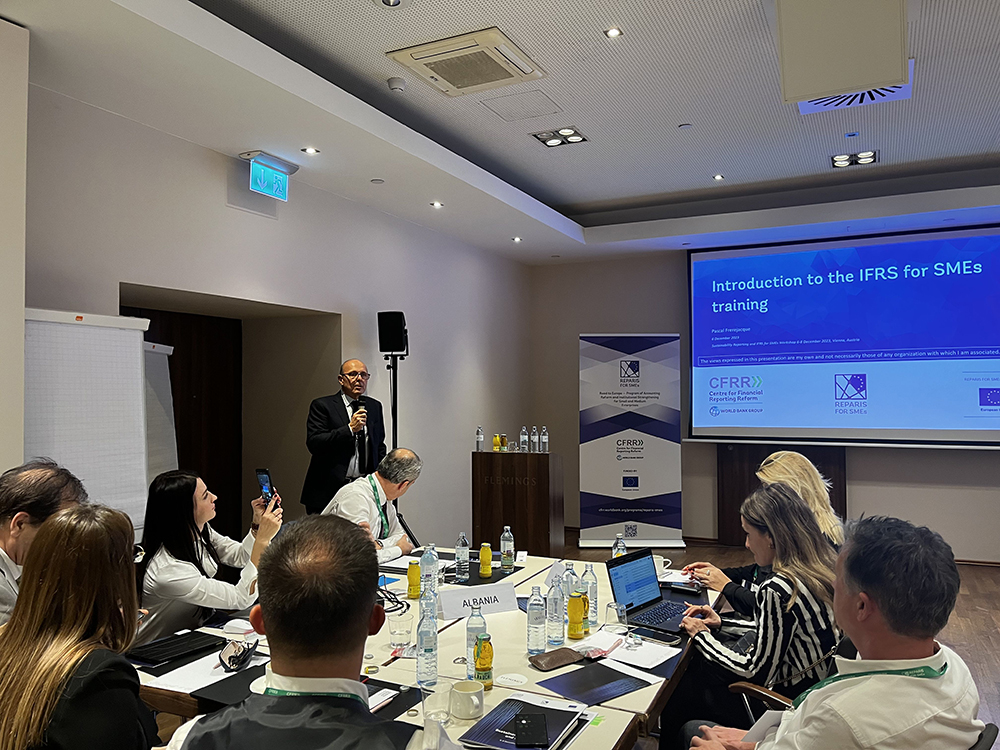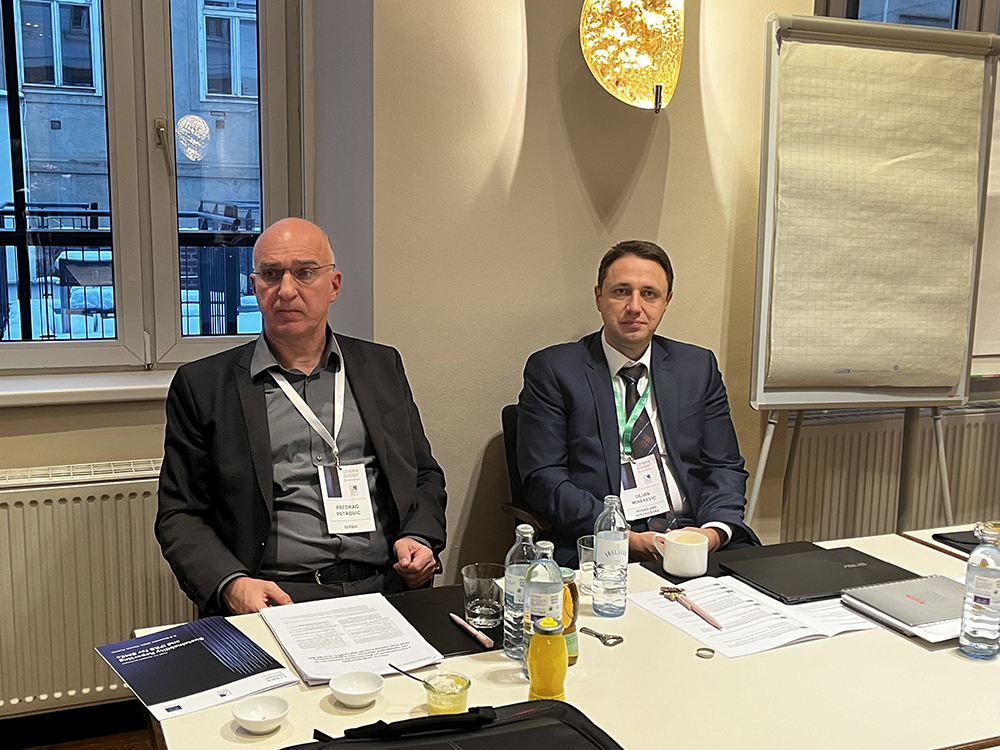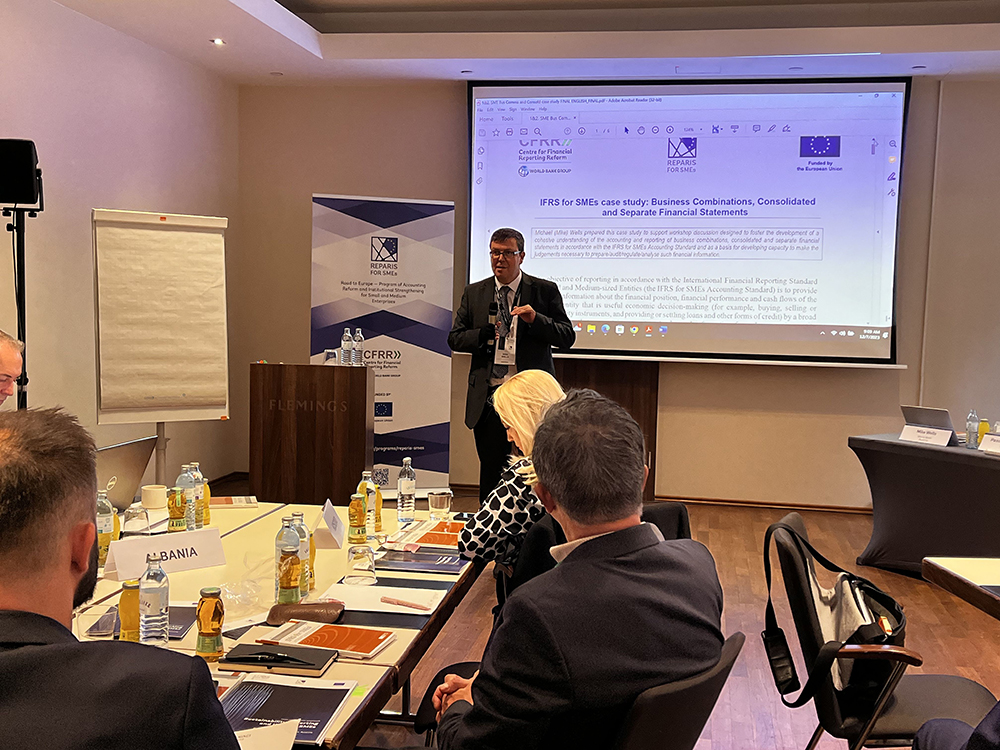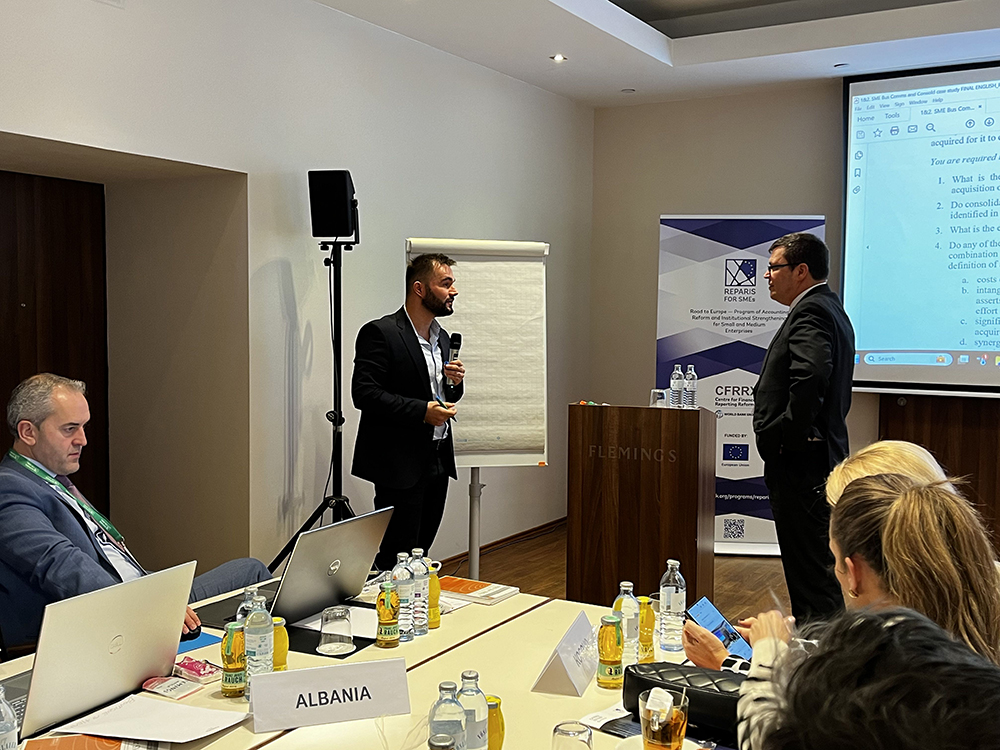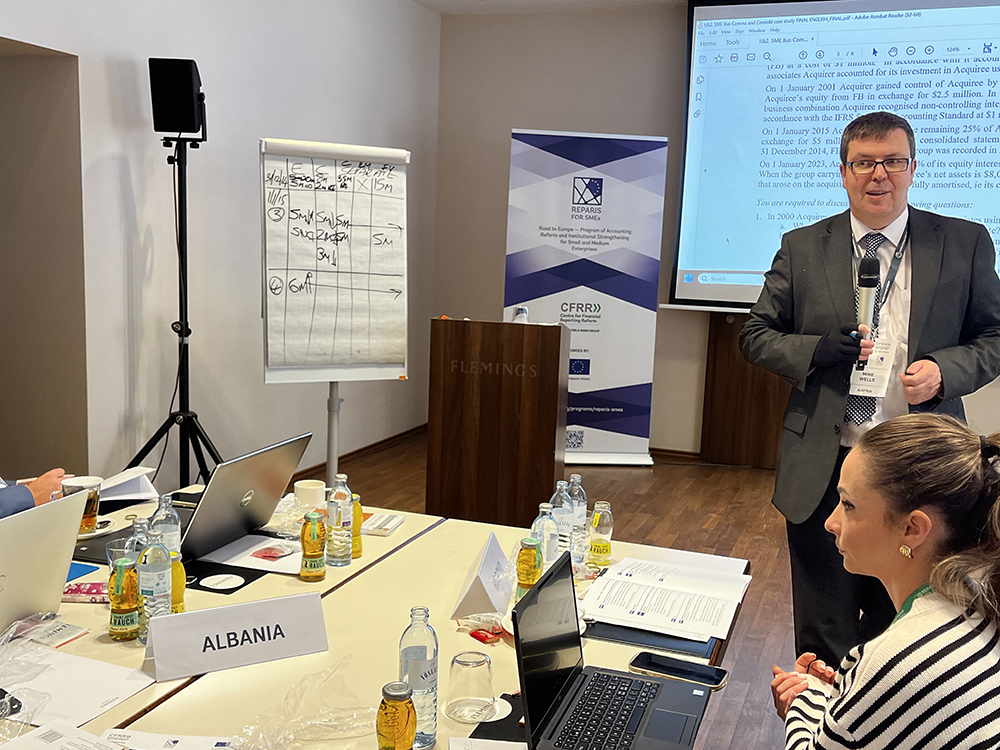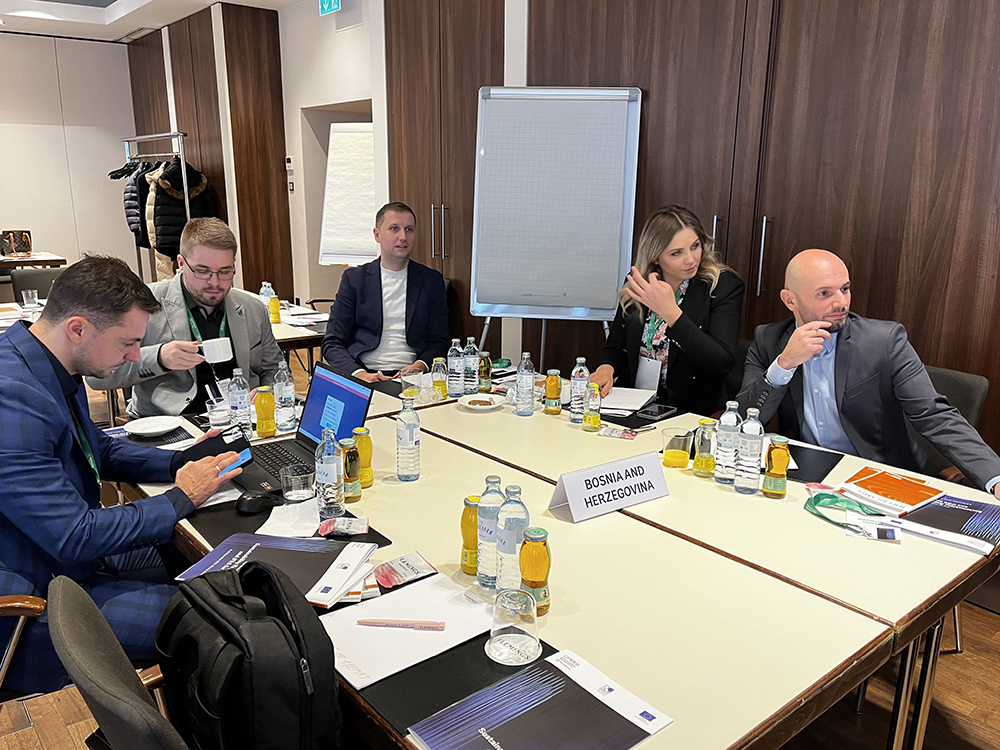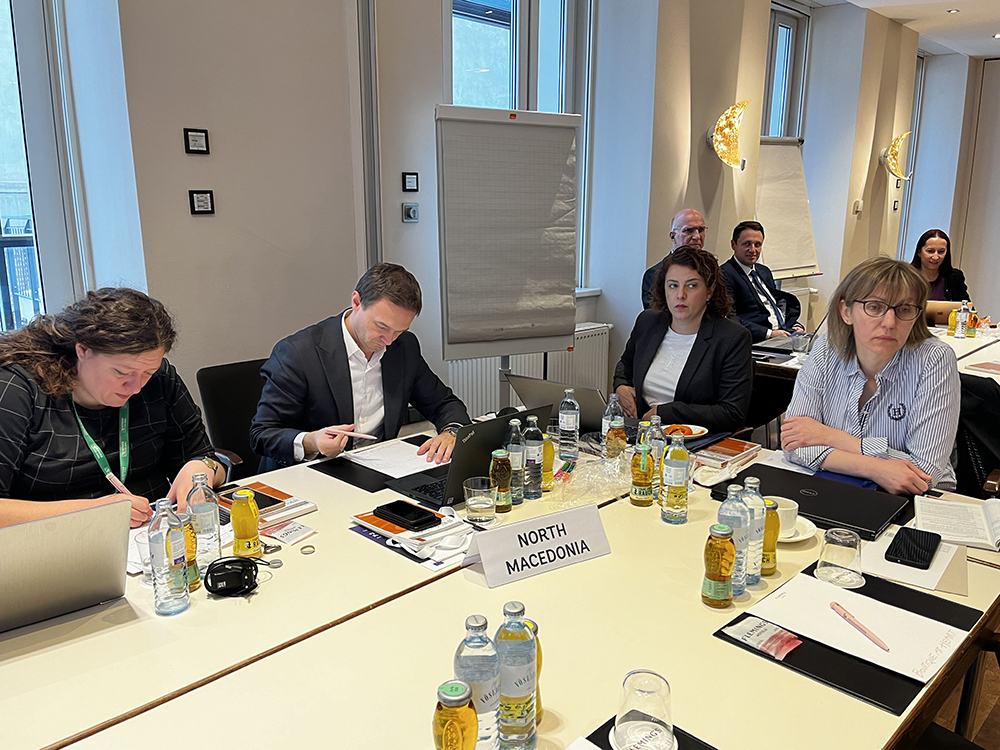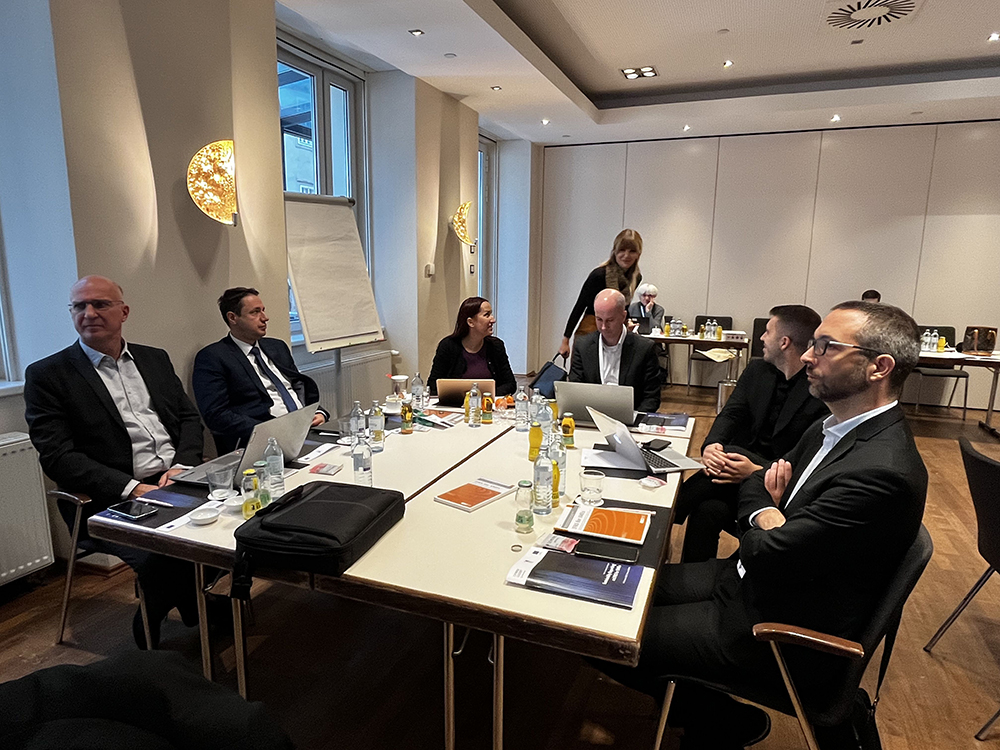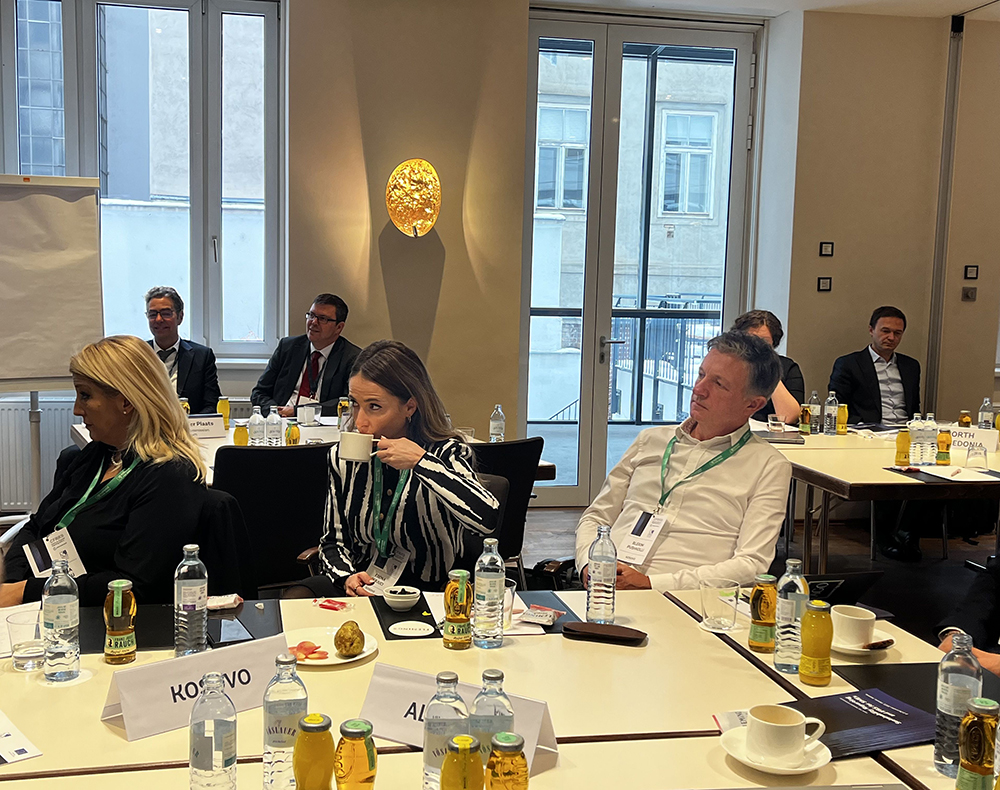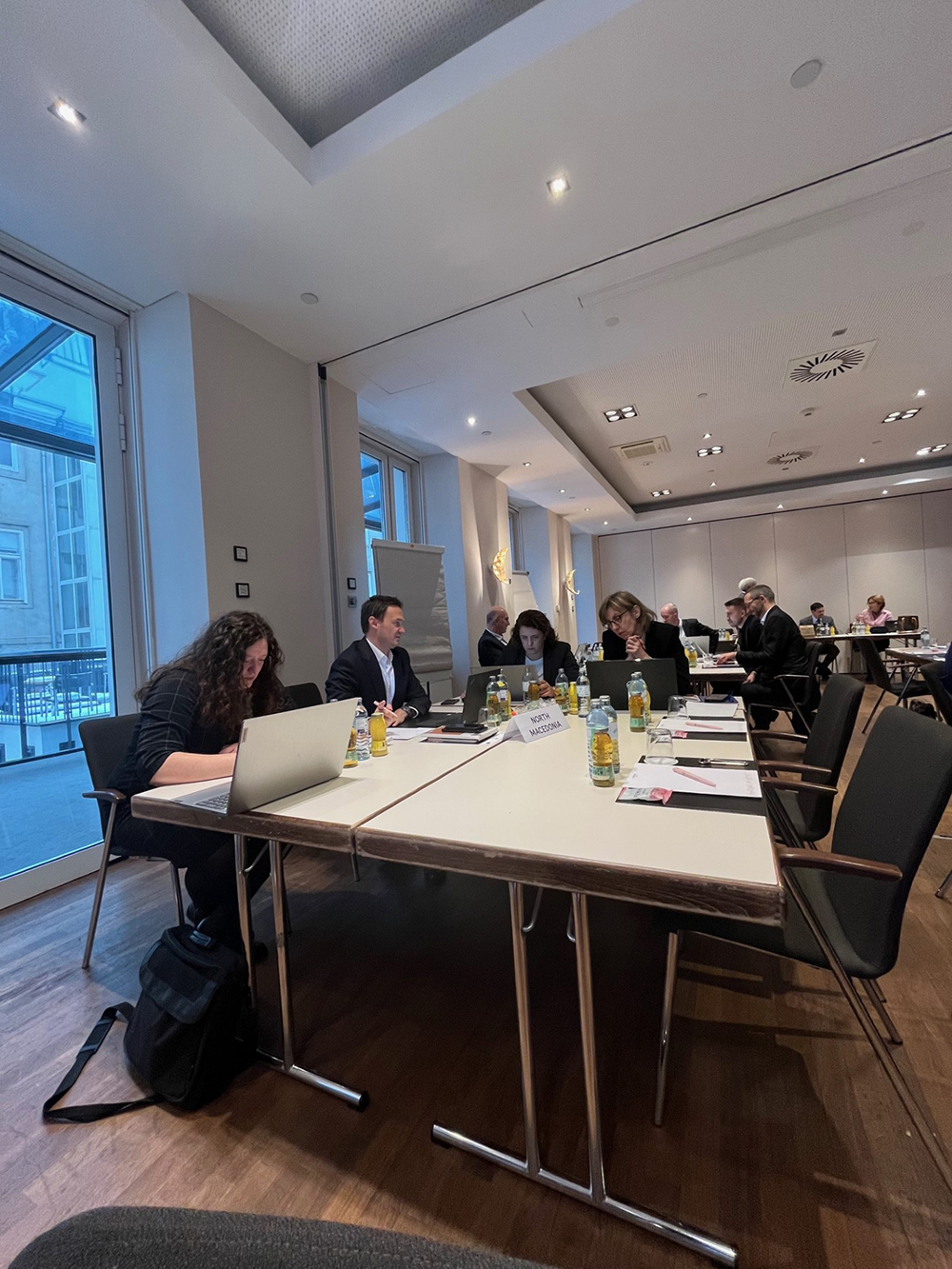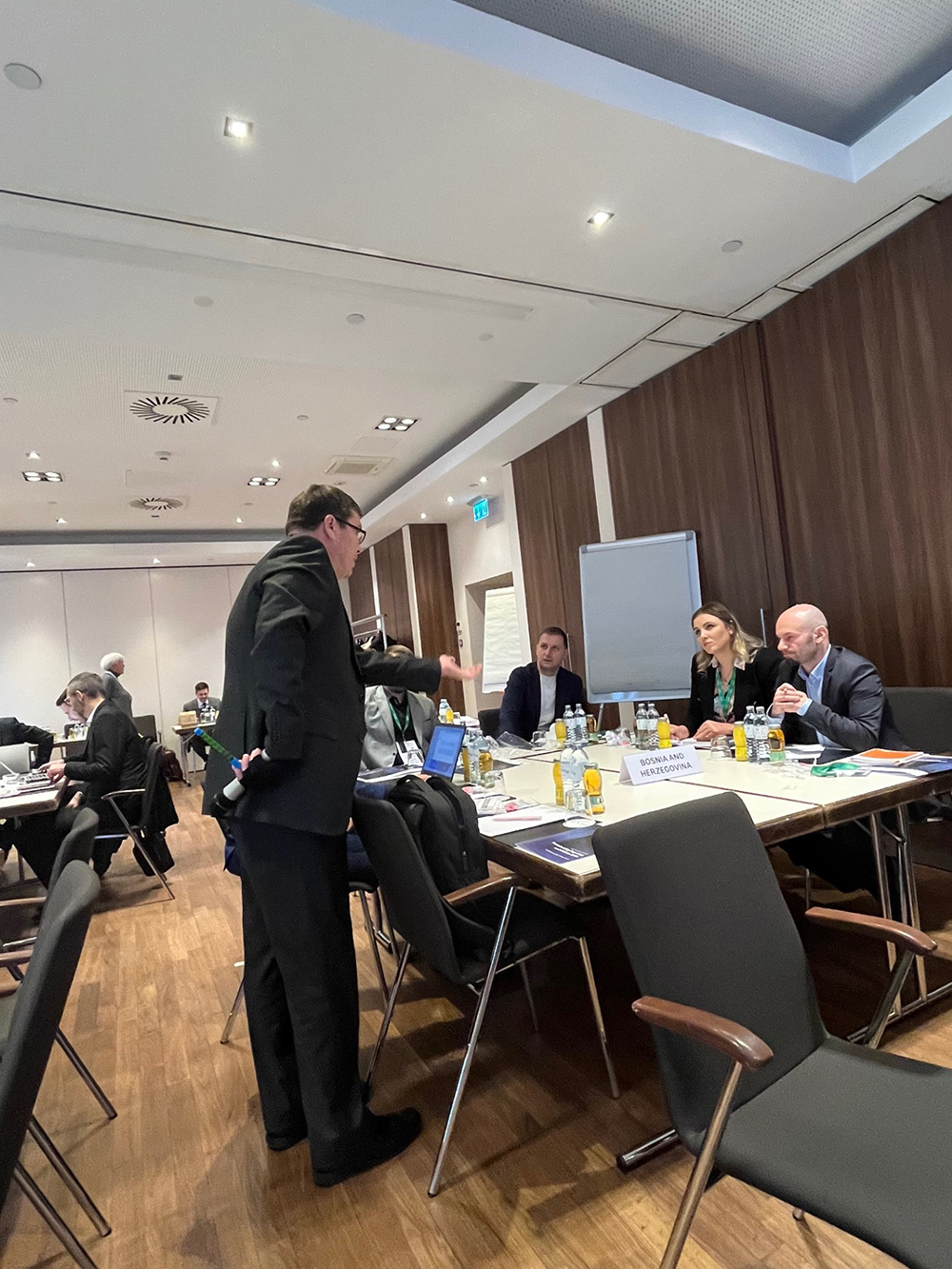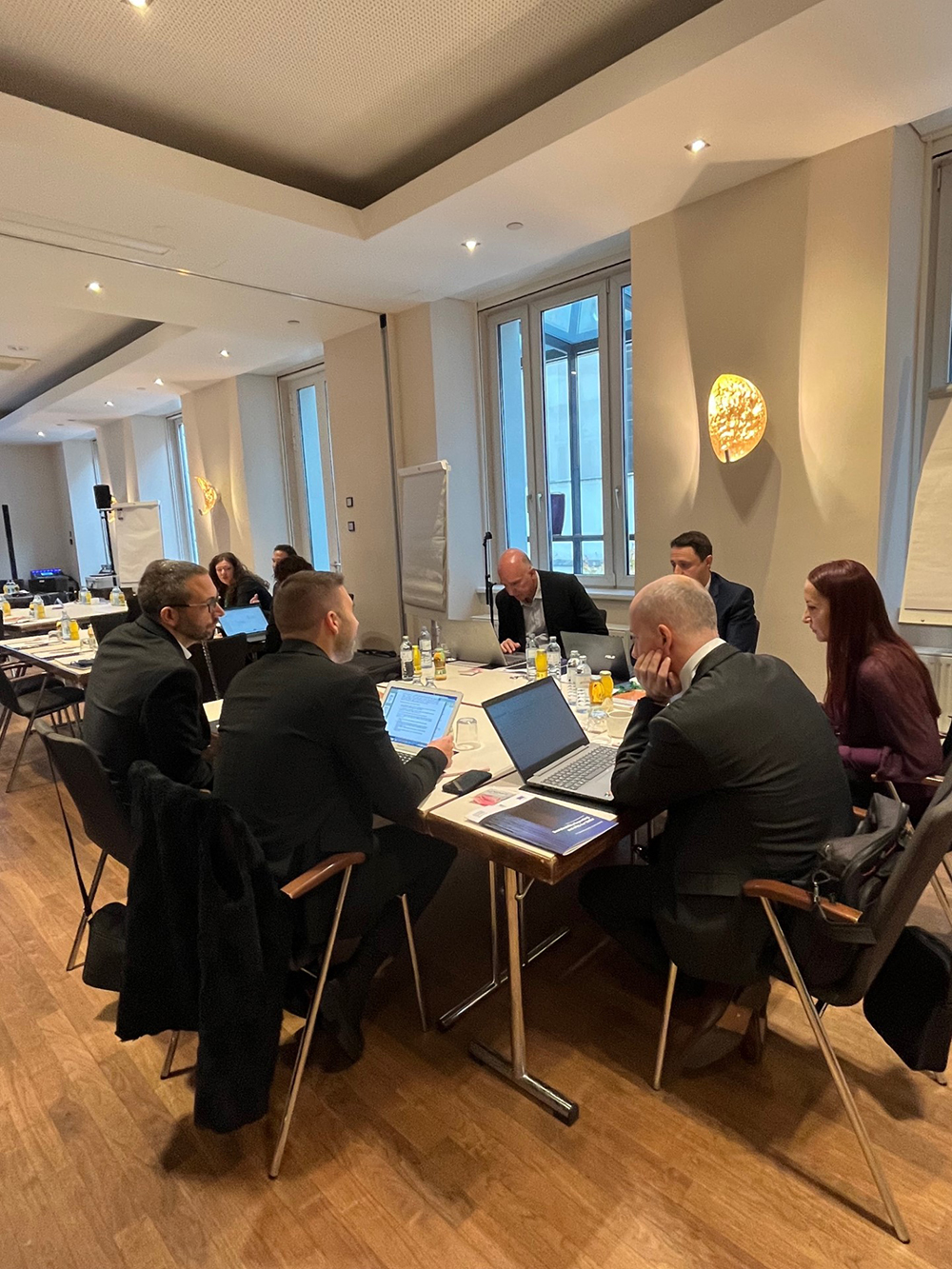The Sustainability Reporting and IFRS for SMEs workshop brought together 26 participants to learn and discuss about sustainability reporting in the European Union, including the transposition of the EU Corporate Sustainability Reporting Directive (CSRD), the 12 European Sustainability Reporting Standards (ESRS), and the related Assurance Standard in the works. Participants were informed by representatives of the EU Commission, EFRAG, the International Auditing and Assurance Standards Board, and Accountancy Europe on sustainability reporting requirements in the EU and their transposition in national legislation.
On the IFRS for SMEs standard, the objective of the training was to prepare trainers to provide advanced training in their own countries using training case-studies made available to them in local language. The training shall be reported to the CFRR and the evaluation of those will be used as indicators of success of the REPARIS for SMEs program component on sustainability education.
This Train the Trainers was delivered under REPARIS for SMEs, a program managed by the World Bank, and funded by the EU.
No country today is immune from the impact of climate change. According to the research of the World Bank, climate change alone could drive 216 million people to migrate within their own countries by 2050, with hotspots of internal migrations emerging as soon as 2030, spreading and intensifying thereafter. To support policy decisions and actions, the EU has decided to implement rapidly for all listed and big companies (above 250 employees) sustainability reporting obligations.
On 31 July 2023 the European Commission adopted the European Sustainability Reporting Standards (ESRS) for use by entities subject to the Corporate Sustainability Reporting Directive (CSRD). The first companies that will report on it are the ones that currently report under the Non-Financial Reporting Directive – that have more than 750 employees – in 2025, on their activities for 2024. A phase-in approach will apply to other companies, including large companies, parent of large groups and certain non-EU companies, and listed SMEs from 2026 to 2028.
The 12 ESRS adopted by the commission cover two cross-cutting standards – general requirements and general disclosures; five environmental – climate, pollution, water and marine resources, biodiversity and ecosystems, resource use and circular economy; social – own workforce, workers in the value chain, affected communities, consumers, and end users, and one on governance: business conduct. All these reporting requirements are interacting with existing EU legislation and are subjected to materiality except for the two cross-cutting standards: general requirements and general disclosures.
The concept of double materiality included in the CSRD, includes impact materiality and financial materiality. It entails that companies are looking at two possible impacts: the risks and opportunities for the companies stemming from sustainability issues and, the impact of the same company on people and the environment.
Reporting under these standards will be assessed by auditors and other assurance provided, starting in 2025, by providing limited assurance and possibly reasonable assurance (equivalent as the assurance provided for an audit of financial statements) in the future.
On the date of the workshop the French Council of Ministry was the first in Europe to approve the national measures for implementing the CSRD, including the accredited authority for the assurance over sustainability reporting: The H3C which was the audit oversight authority becomes the H2A and will be the accreditation authority for the assurance over sustainability reporting obligations.
The implementation of the CSRD at national level can be complicated: in Austria its implementation requires the amendments of 21 national laws even if the standards are of direct application through an EU delegated act.
Accountancy Europe runs education programs for its members to facilitate exchange of experience and good practice among member bodies and raise awareness. More specifically it provides webinars on integrating sustainability into education across Europe and transposition trends. It also publishes publications on sustainability reporting for SMEs.
Even when a jurisdiction does not specify use of the IFRS for SMEs Accounting Standard that standard underpins many country-level accounting frameworks for small and medium-sized entities (SMEs). The two-day IFRS for SME technical session, provided trainers with knowledge and case studies to replicate advance training in their own jurisdiction, and enhance the capacity of accounting professionals to provide accounting and advisory services to SMEs.
The new standard on auditing less-complex entities – LCE, will help the audit profession to audit SMEs that have audit obligations under EU and local legislation.
The overall satisfaction of the participants was above the 90th percentile.
